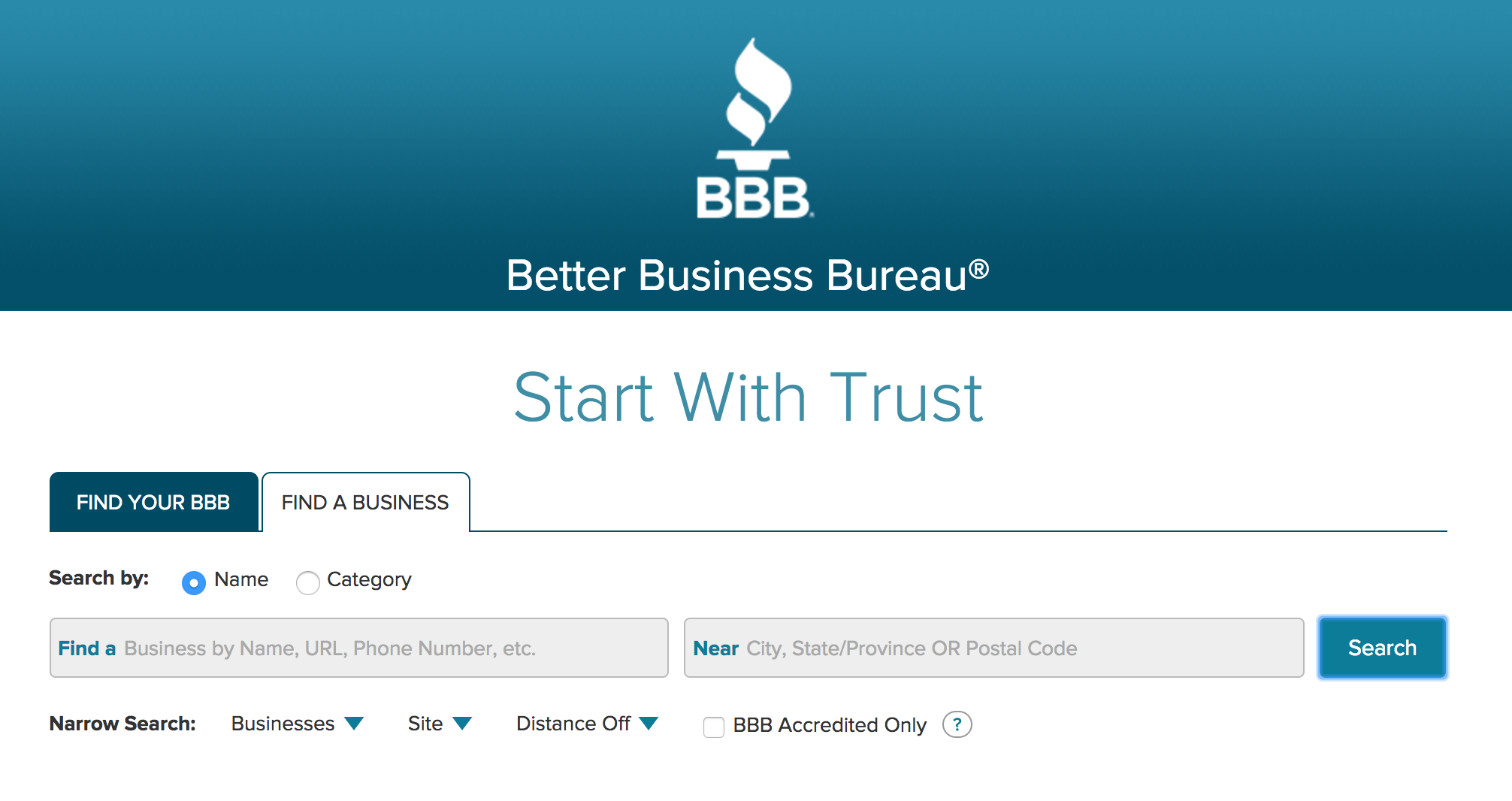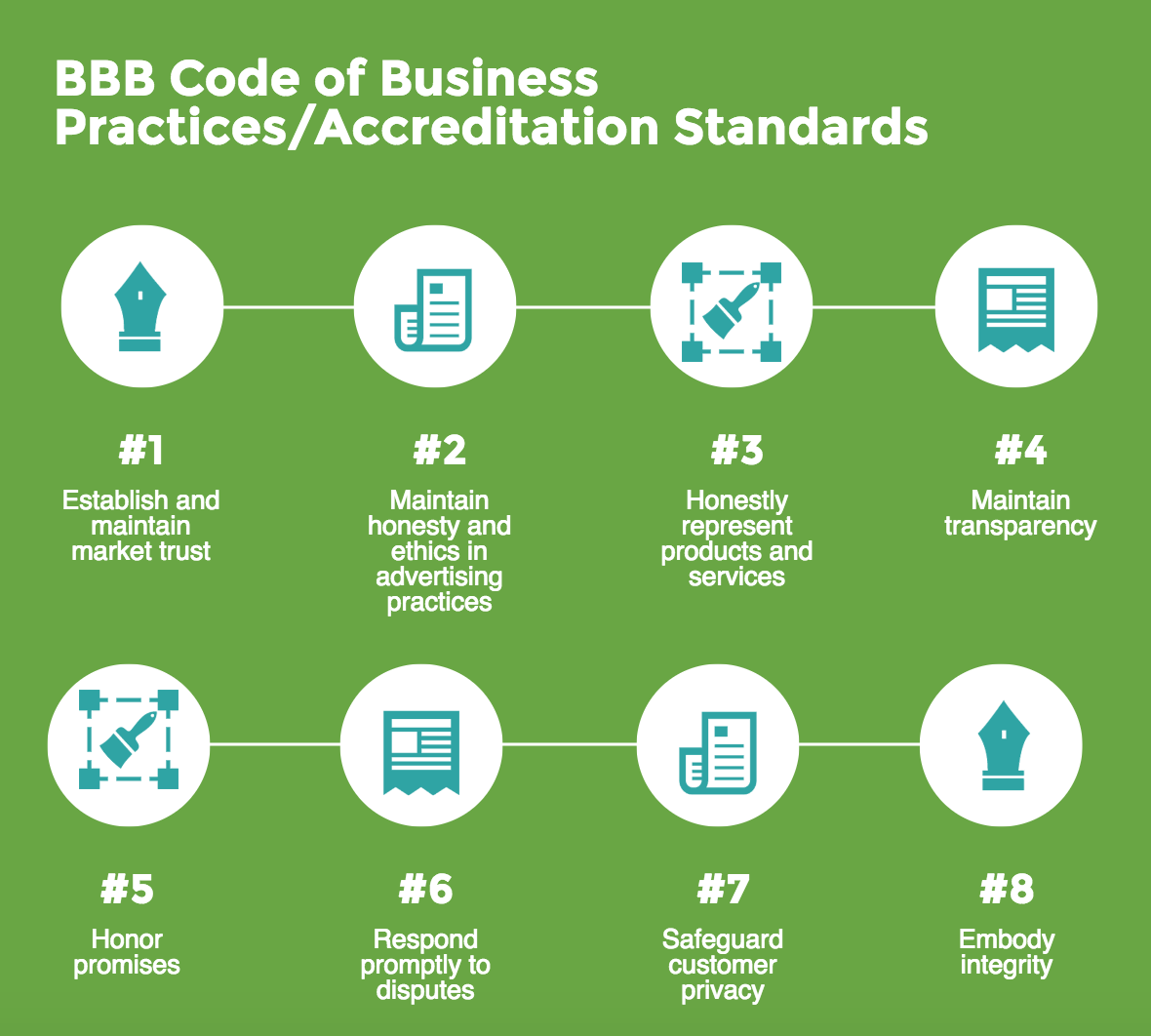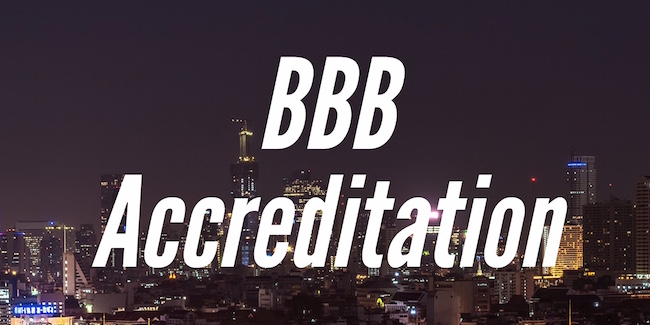Businesses looking to improve their image with the public and acquire new customers through the BBB’s Accredited Business Directories can pursue accreditation and earn the right to utilize the internationally recognized BBB logos in their advertising. Acquiring accreditation requires the meeting of certain criteria and application to a local BBB. While the BBB certainly does not protect the world from monopolistic competition, the BBB does help keep unsavory businesses at bay.
The Better Business Bureau (BBB) has acted as an advocate of marketplace trust and good business practices for over 100 years, acting to provide consumers with information on the integrity of businesses around the world.

Table of Contents
ToggleStep One:
Visit the Better Business Bureau website or contact your local organization to make sure your business meets the BBB Code of Business Practices/Accreditation Standards. Businesses are required to:
- Establish and maintain market trust. Businesses seeking accreditation must operate in a service area for over a year, meet all licensing and bonding requirements in their local jurisdiction, maintain a satisfactory BBB rating, and avoid government actions demonstrating a failure to comply with BBB ethical standards.
- Maintain honesty and ethics in advertising practices. Businesses must comply with all governmental advertising laws and with the BBB Code of Advertising.
- Honestly represent products and services. Businesses should make known all important facts to customers without misrepresentation, obfuscation, or omission.
- Maintain transparency. Businesses should not seek to hide the nature, ownership, location of a business or policies, procedures, or guarantees that may influence a consumer’s decision to purchase goods or services.
- Honor promises. Businesses should abide by all written and verbal agreements and correct mistakes as quickly as possible.
- Respond promptly to disputes. Businesses must make good faith efforts to respond to disputes raised with the BBB, including acceptance when necessary of BBB mediation.
- Safeguard customer privacy. Online businesses must disclose security and privacy information on their websites and businesses which collect sensitive data must comply with industry standards of protection and disposal of such information.
- Embody integrity. Businesses must avoid any unethical activity which reflects negatively upon the Better Business Bureau and its accredited businesses.

Step Two:
Once you’ve made sure your business complies with the Code of Business Practices, look up the incorporated Better Business Bureau office for your region and make an inquiry. You can also visit your region’s BBB website and submit a contact form to receive information from a consultant.
Step Three:
Submit a full application. Bureau staff will review and verify the application and research your business. Also, you may be asked to provide additional information or to provide proof of information on your application. Consequently, your business will then be evaluated on its compliance with the BBB Code of Business Practices.
Step Four:
If the BBB approves your application, you must then pay the Accreditation Fee to receive all the benefits of Better Business Bureau Accreditation.
If your business is denied, the BBB will mail you a letter telling you why you were denied and what steps you might take for reconsideration.
Conclusion
You have little to fear if you maintain fair and honest business practices and comply with industry standards. The BBB aims to create marketplace trust by presenting the public with honest businesses and does not otherwise discriminate.









